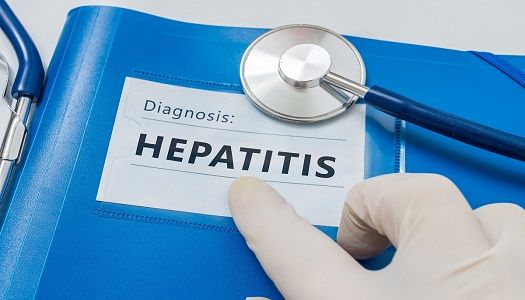New Genotyping Test Could Assist Clinicians with Target Care for HCV Patients
The test allows for rapid, accurate testing of serum samples with results in 30 minutes.

Dr. Waisun Chantratita, PhD, Chief of Virology and Molecular Biology at Ramathbodi Hospital and Bangkok Thailand, and fellow researchers at Mahidol University in Thailand and Hallym University in Korea, have developed an improved method for the accurate detection of Hepatitis C Virus (HCV) genotypes called the 6 HCV Genotyping 9G test. The test allows for rapid, accurate testing of serum samples with results in 30 minutes. Dr. Chantratita and colleagues believe that the 6 HCV Genotyping G9 test could help clinicians increase the speed and accuracy of their testing, thereby accelerating treatment for patients with HCV.
According to the World Health Organization there were more than “1.75 million new HCV infections” in 2015 and testing patients diagnosed with HCV to identify specific genotypes is crucial for guiding treatment of the disease. Dr. Chantratita points out that “treatment of HCV infected patients has become intricate due to various genotypes and subtypes of HCV” and that the European Association for the Study of the Liver (EASL) has validated the need for genotype testing associated with HCV because treatment outcomes are so closely tied to proper identification and targeted treatments for each genotype and sub-genotype of the virus.
Dr. Chantratita states that “for optimal patient therapy it is imperative to detect and discriminate the crucial HCV genotypes by using simple and accurate detection method,” but that current testing is time-consuming, expensive, and requires the skills of highly trained viral pathologists. The research group’s development of and testing of the 6 HCV Genotyping G9 test provides an inexpensive, highly-accurate, alternative to current testing.
The 6 HCV Genotyping 9G test uses 9G technology developed in 2013, and adapts that technology specifically for genotyping of HCV strains. The test, according to Dr. Chantratita and colleagues, provides important genotyping data on HCV strains 1a, 1b, 2, 3, 4, and 6 (including sub-genotypes of 6) to clinicians in less than 30 minutes.
The blind study to confirm accuracy and reliability of the 6 HCV Genotyping 9G test was carried out on 152 samples collected from June 2015-2016. Patients were selected from “various provinces of Thailand, and other countries such as Vietnam, Malaysia, Cambodia, Laos, and Myanmar.” 110 samples were from patients suspected of HCV and 42 samples were from healthy persons without a history of HCV. Each sample was also tested and analyzed by a standard gene sequencing and dna analysis program as a control.
Comparative analysis of the resultant data showed that there was “good concordance between the two tests.” Dr. Chantratita reports that “the sensitivity, specificity, positive predictive (PPV) and negative predictive values (NPV) were at 95% confidence interval.” All of the 42 negative samples were correctly identified by both systems, and out of the 110 positive HCV samples the 6 HCV Genotyping 9G test correctly identified genotypes and sub-genotypes with 99.1% sensitivity and 99.7% specificity when compared to the results of the more expensive and more labor intensive full sequence testing.
Dr. Chantratita points out that although sequencing is still the most accurate method for genotyping HCV there are “certain disadvantages” to sequencing beyond the excessive cost and time factors. “It is a well-known fact” Chantratita writes, “ that genomic sequencing does not allow the identification of mixed genotypes in the serum samples” thus making the 6 HCV Genotyping 9G test more accurate when it comes to identification of genotypes outside those dominant in the population. Identification of those mixed genotypes is becoming increasingly important to treatment as new sub-genotypes develop, particularly in Asian countries where HCV 6 and its subtypes are “significantly different from the overall global ratio.”
The overall results of the testing shows that the 6 HCV Genotyping 9G test could prove to be a game-changing tool for clinicians in terms of efficiency and effectiveness, allowing them to accelerate HCV strain identification and more accurately tailor treatment for their patients with HCV.
The article "6 HCV Genotyping 9G test for HCV 1a, 1b, 2, 3, 4, and 6 (6a, 6f, 6i, 6n) with High Accuracy" was published in the Journal of Virological Methods in April 2017.
Related coverage:
Hepatitis C Testing Remains Low for Baby Boomers Despite Recent Increase
Hepatitis B, C Threat Can Be Eliminated in the US by 2030, Physicians Say
New Hepatitis C Combination Pill Targets Hard-to-Treat Patients